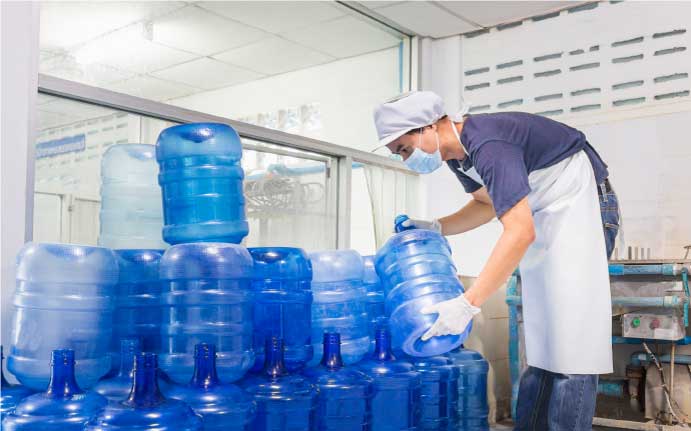
Water is an essential resource for life, and it becomes even more critical during emergencies and disasters. Whether it’s a natural disaster like a hurricane or earthquake, or a man-made crisis such as a chemical spill or power outage, access to clean and safe drinking water becomes a top priority. In times of crisis, emergency water delivery services play a crucial role in ensuring that communities have access to this vital resource. In this article, we will explore the importance of emergency water delivery and the steps you can take to prepare for such situations.
Emergency water delivery services are designed to provide immediate assistance in times of crisis when the regular water supply is disrupted or contaminated. These services work closely with local authorities, relief organizations, and communities to ensure that clean and safe drinking water is available to those in need. They have the expertise and resources to deliver large quantities of water quickly and efficiently, alleviating the burden on affected communities.
During emergencies and disasters, the regular water supply can be compromised in various ways. Flooding can contaminate water sources with pollutants, debris, and sewage, making it unsafe for consumption. Power outages can disrupt water treatment plants, rendering tap water undrinkable. In such situations, emergency water delivery services step in to bridge the gap and provide a temporary solution until the regular water supply is restored.
One of the key advantages of emergency water delivery services is their ability to respond rapidly to crises. These services are equipped with specialized vehicles, such as water trucks and tankers, that can transport large volumes of water to affected areas. They have established networks and partnerships with local authorities and relief organizations, enabling them to coordinate their efforts effectively. This ensures that water reaches those who need it most in a timely manner.
Preparing for emergencies and disasters is essential to minimize their impact on our lives. When it comes to water, there are several steps you can take to ensure that you and your family are adequately prepared. First and foremost, it is crucial to have an emergency water supply at home and contact of a water supplier. The general rule of thumb is to store at least one gallon of water per person per day for a minimum of three days. This water should be stored in clean, airtight containers, and replaced every six months to ensure its freshness.
In addition to storing water, it is also important to have the necessary tools and equipment to purify water in case of contamination. This can include water filters, purification tablets, or even a portable water purification system. These items can be a lifesaver during emergencies when access to clean water is limited or non-existent. It is advisable to familiarize yourself with the usage instructions and keep them readily accessible in your emergency preparedness kit.
Another aspect of preparedness is knowing where to access emergency water delivery services in your area. Research and identify the local organizations or agencies that provide these services and keep their contact information handy. During a crisis, it may be challenging to find this information quickly, so it is best to be prepared in advance. Additionally, stay informed about any emergency alerts or advisories issued by local authorities regarding water safety. These notifications will provide valuable information on the availability of emergency water delivery services and any precautions you need to take.
While emergency water delivery services are essential during disasters, it is equally important to conserve water and use it judiciously. During emergencies, water supplies can be limited, and every drop counts. Simple measures like taking shorter showers, fixing leaky faucets, and using water-efficient appliances can make a significant difference in conserving water. By practicing water conservation habits in our daily lives, we not only contribute to the sustainability of our water resources but also ensure that there is enough water available for everyone during emergencies.
In conclusion, emergency water delivery services play a vital role in ensuring access to clean and safe drinking water during emergencies and disasters. Their prompt response and efficient delivery systems help alleviate the burden on affected communities. However, it is essential for individuals and families to be prepared as well. By storing an emergency water supply, having the necessary water purification tools, and staying informed about local emergency water delivery services, we can ensure that we are ready to face any crisis. Additionally, practicing water conservation habits in our daily lives helps to sustain our water resources and ensures that there is enough water for everyone, even in times of emergency.
- October 2, 2023
- Delivery
